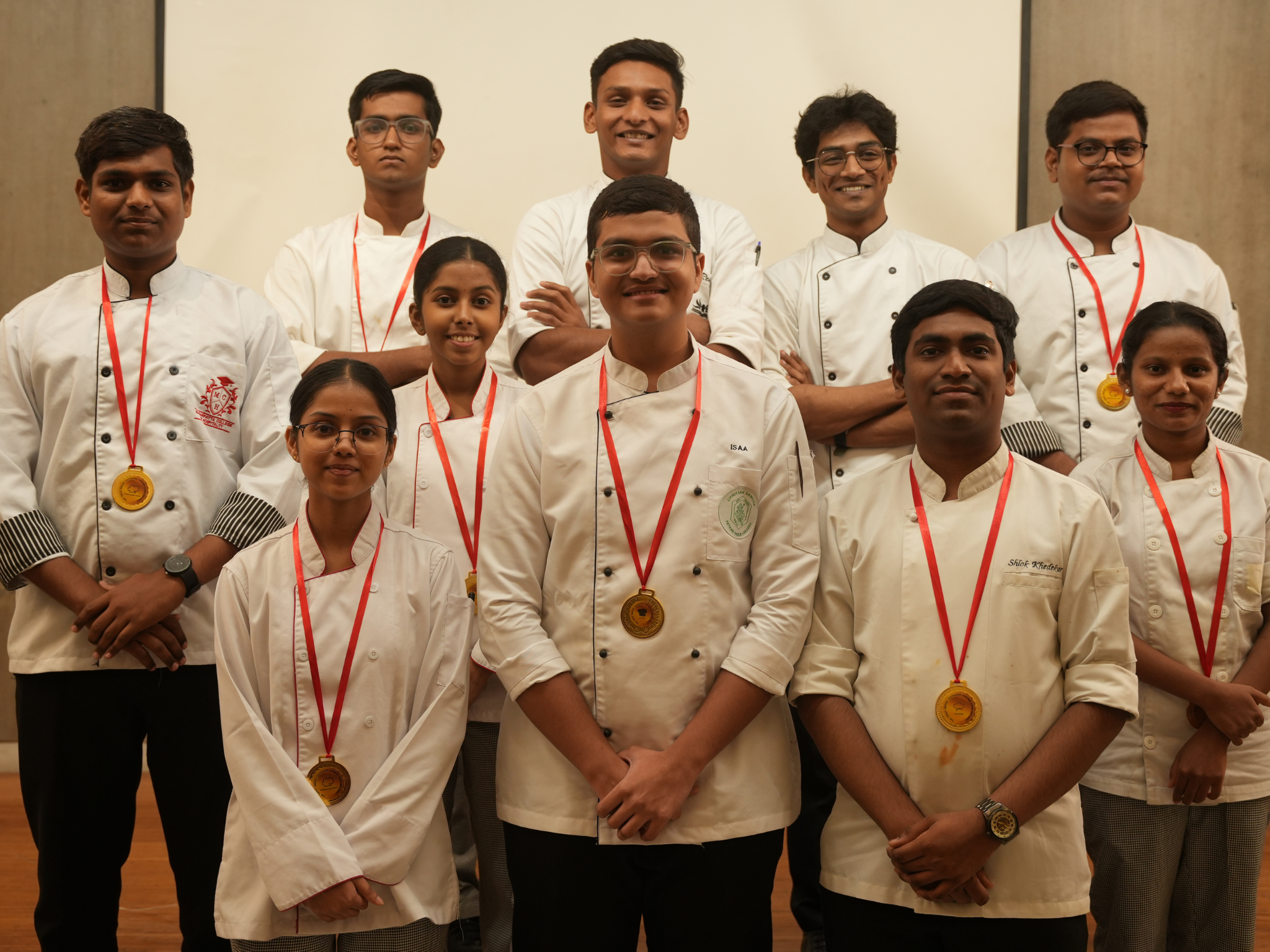
Biokraft Foods held a Great Indian Cultivated Chicken Cook-Off last week, with young chefs showcasing the future of food in the Navi Mumbai event.
For the most part, cultivated meat companies have relied on chefs to flaunt the full potential of their products. The majority of launches have been held at innovative restaurants in the US, Singapore and Australia. Only two of these innovations have entered a supermarket, and one was for pets.
Biokraft Foods is taking the same approach in India. The Mumbai-based maker of cultivated chicken held a cooking competition for its product, dubbed the Great Indian Cultivated Chicken Cook-Off, at the DY Patil School of Hospitality & Tourism Studies last week.
The final involved 10 culinary students, who were tasked to create an appetiser using the cultivated meat as a hero ingredient for a four-strong panel of leading chefs.
“We wanted to show that cultivated chicken is real food with real culinary potential. By bringing cultivated chicken meat to young chefs, we encouraged them to reimagine cultivated chicken through creativity, culture, and tast,,” Biokraft Foods founder and CEO Kamalnayan Tibrewal tells Green Queen.
“These young chefs represent the future of the food ecosystem, and it is important that they engage with ideas that go beyond cooking and that sustainability, ethics, and delicious new ingredients are equally important,” he adds. “The cook-off was our way of making the idea tangible and sparking conversations about how cultivated meat could fit into India’s food future.”
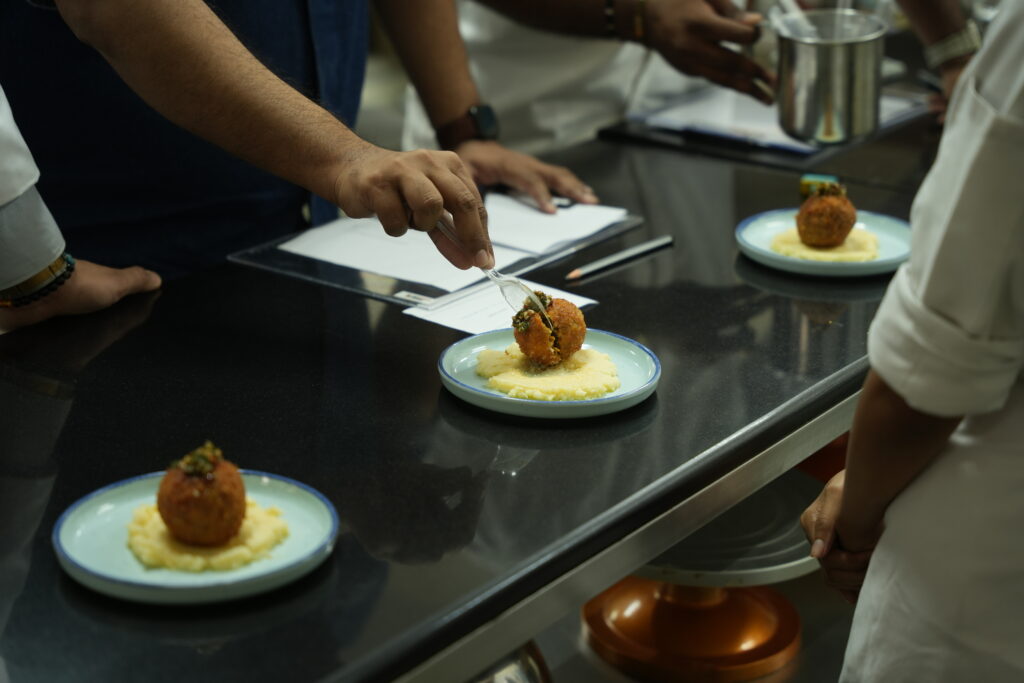
The cook-off’s winning cultivated chicken dishes
The competition saw participants from some of India’s leading culinary schools, and the dishes were judged with several criteria in mind, including hygiene and food waste management, taste and texture, innovation and creativity, and presentation.
The winning dish, called Masalon ka Safar (Hindi for ‘A Journey of Spices’), came courtesy of Issa Patel, a student at the Patkar-Varde College Department of Hospitality and Catering. He won a prize of ₹40,000 ($455). It brought together flavours from across India: saffron naan from the north, Champaran chicken from the east, tangy tomato chutney from the south, and green chilli thecha from the West.
“Cultivated chicken felt no different from conventional chicken, tasty, tender, and satisfying. The real plus is that it’s an ethical and sustainable way to enjoy meat,” Patel tells Green Queen.
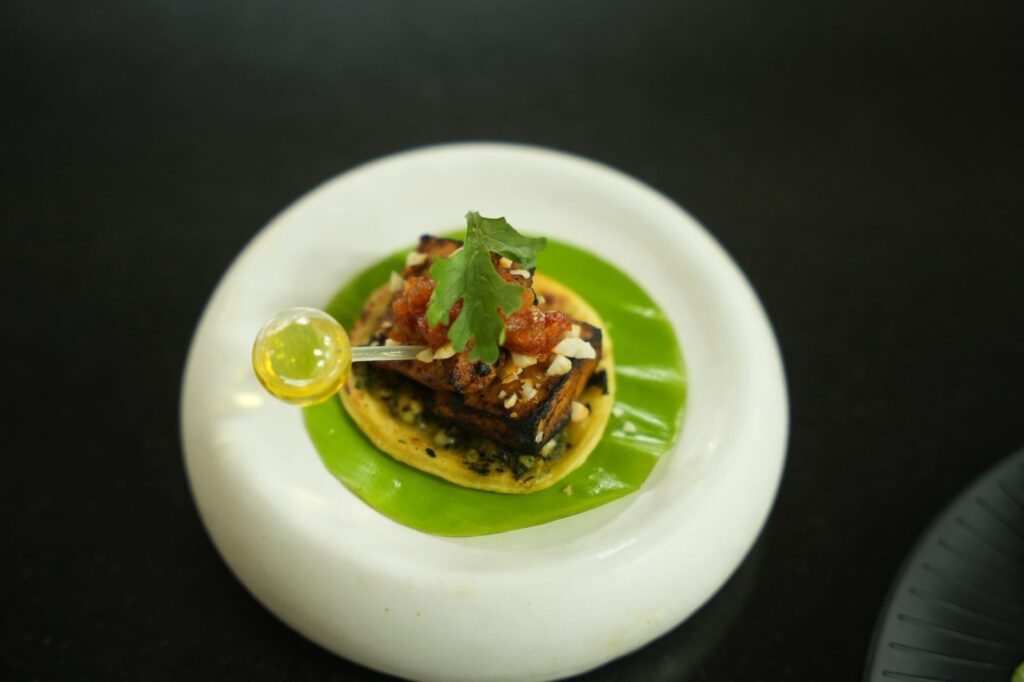
Another student from the same institute, Shlok Khedekar, secured second place and ₹30,000 ($340) for his creation, Nawabi Yakitori with Miso-Caramel Sauce. “For me, cultivated chicken represents a step towards modern gastronomy, meeting protein needs, delighting taste palettes, and offering a humane, cruelty-free way to enjoy meat,” he says.
The third prize (worth ₹20,000/$230) went to Vedika Sakpal, a student from the host institute, who made Malai Rose Dumplings. The Kohinoor College of Hotel and Tourism Management Studies’s Shravan Kadam, meanwhile, won ₹10,000 ($115) as part of a special innovation prize for his dish, called Sanjeevani Jugalbandi.
“As a chef, it is inspiring to see cultivated chicken, just like farmed chicken, being marinated, grilled, spiced, and plated with pride, using different techniques, in a commercial environment,” says Demetrius Cordeiro D’Souza, new product development chef at Biokraft Foods.
“This competition proves that innovation and tradition can share the same plate, thus opening doors to a revolutionary culinary experience in the future,” he adds.
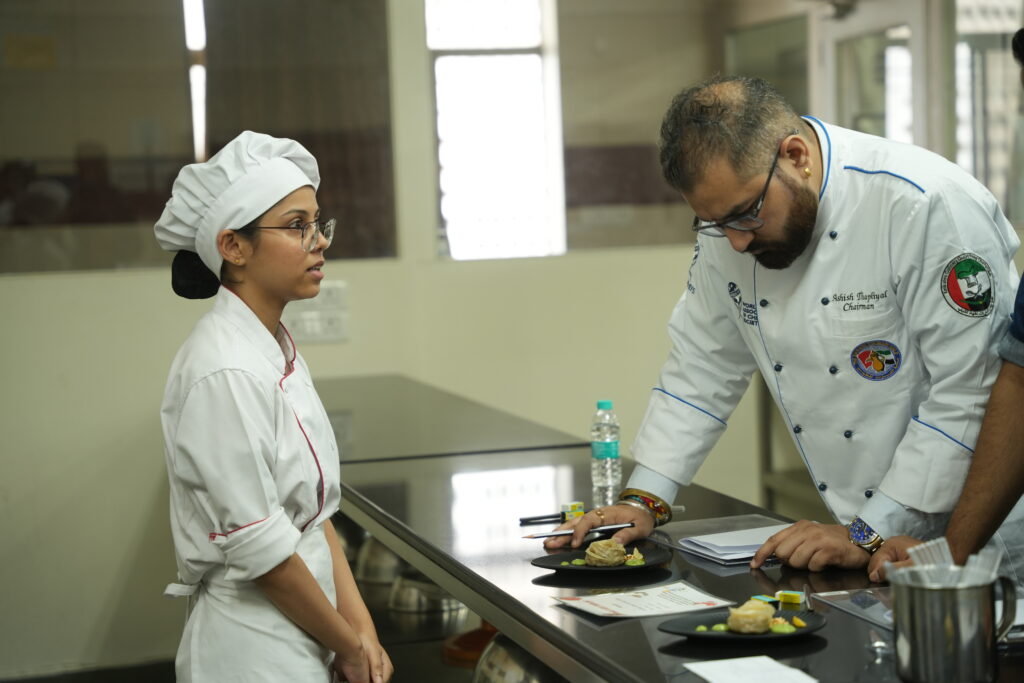
Biokraft Foods charts path to market for cultivated meat
The winners of Biokraft Foods’s cook-off will receive a sponsored visit to the Merck Life Science facility in Bangalore, giving them a glimpse of the food science behind cultivated meat.
“This is just the beginning. We see the winners as ambassadors of what is possible with cultivated meat,” says Tibrewal. “We would love to involve them in future collaborations, whether through recipe development, showcasing cultivated chicken at pop-ups, or even supporting our eventual market entry. Their creativity helps us connect with consumers in ways science [or] food tech alone cannot.”
In addition to the cook-off, Biokraft Foods also hosted Forkward, a series of panels highlighting the views of stakeholders across the food industry. They included discussions about modernising menus with cultivated meat, the health and sustainability potential of these proteins, and the bridge between innovation and consumer trust.
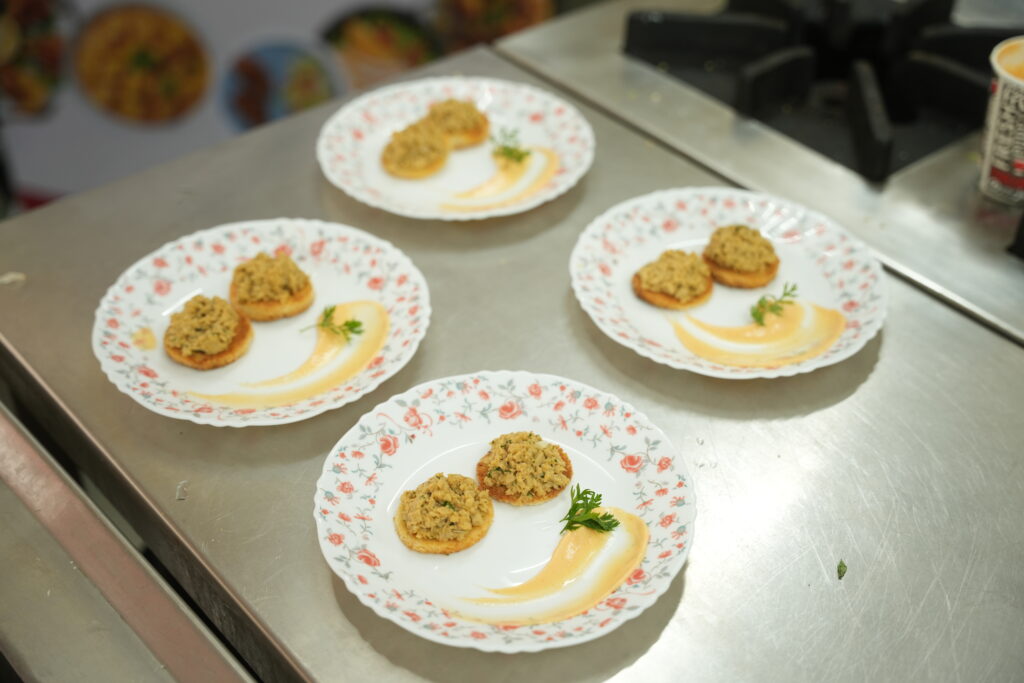
This series of talks gave chefs the chance to “learn directly from diverse voices across the food ecosystem, including non-profits, foodtech pioneers, founders, and leaders from hospitality”, according to Tibrewal. “This is just the beginning of many such conversations that will shape India’s journey towards sustainable proteins,” he said.
Speaking to Green Queen after hosting India’s first public tasting for cultivated meat in April, he said the two-year-old startup planned to file for regulatory approval with the Food Safety and Standards Authority (FSSAI) of India this year.
“The approval pathway calls for thorough safety evaluations, detailed scientific evidence, and transparency in production practices, with the dual aim of safeguarding consumers and fostering innovation,” he says now.
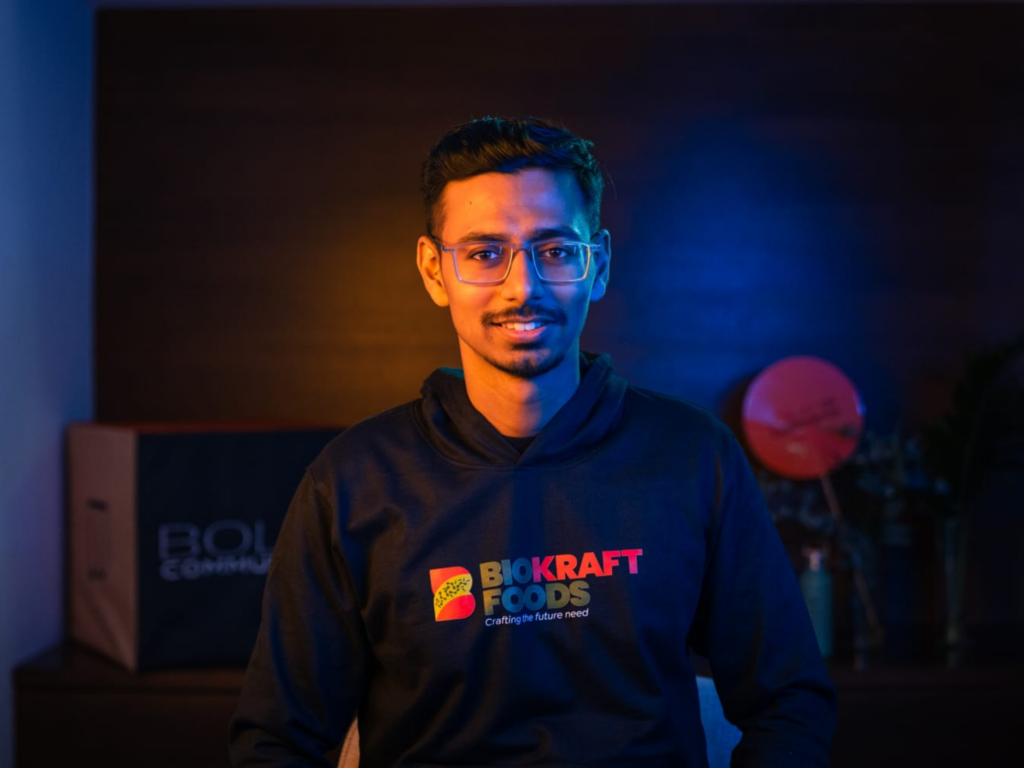
“FSSAI has already set up a scientific working group to create clear evaluation frameworks for cultivated meat, and these frameworks reflect the country’s forward-looking stance on regulation and willingness to engage with next-generation food solutions. This is also complemented by industry efforts to provide strong data on safety, nutrition, and sustainability.”
An update on its regulatory progress is expected soon, but in the meantime, Biokraft Foods is already plotting its path into the market. “Chefs, hotels and restaurants are the best partners to introduce cultivated meat to consumers because they shape taste experiences and build trust,” says Tibrewal. “Once acceptance grows, we would then look at retail formats.”
The post Inside India’s First Cultivated Chicken Competition for Chefs appeared first on Green Queen.
This post was originally published on Green Queen.